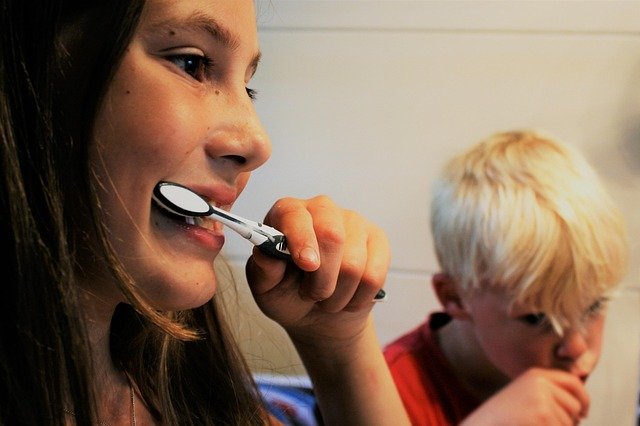Home Remedies for Bad Breath That Work
Home remedies for bad breath include regular brushing, tongue cleaning, and hydration. Natural options like saltwater rinses, chewing parsley, or drinking green tea can help neutralize odors. Persistent cases may signal underlying dental or digestive issues.

Bad breath is more than just an occasional inconvenience. It can stem from various factors including poor oral hygiene, certain foods, dry mouth, tobacco use, or underlying medical conditions. The good news is that many effective solutions exist right in your kitchen or bathroom cabinet. By incorporating simple practices and natural ingredients into your daily routine, you can address bad breath at its source and enjoy lasting freshness.
What Causes Bad Breath and How Can Home Remedies Help?
Bad breath typically originates from bacteria in the mouth that break down food particles, releasing sulfur compounds with unpleasant odors. The tongue, particularly its back portion, harbors most of these bacteria. Home remedies work by reducing bacterial growth, neutralizing odors, stimulating saliva production, or addressing specific causes like food residue. Natural approaches often complement good oral hygiene practices, providing a holistic strategy for maintaining fresh breath. Some remedies also offer antibacterial and anti-inflammatory properties that support overall oral health beyond just masking odors.
Which Natural Ingredients Work as Bad Breath Home Remedies?
Several household items demonstrate effectiveness against bad breath. Baking soda neutralizes acids and kills bacteria when used as a mouth rinse or added to toothpaste. Apple cider vinegar contains acetic acid with antibacterial properties, though it should be diluted before use. Green tea contains polyphenols that reduce sulfur compounds and inhibit bacterial growth. Parsley, mint, and other fresh herbs contain chlorophyll, which acts as a natural deodorizer. Cinnamon sticks contain essential oils with antimicrobial effects. Cloves possess eugenol, a compound with antiseptic qualities. Fennel seeds stimulate saliva production and provide a pleasant taste. Yogurt with active cultures can reduce hydrogen sulfide levels in the mouth. Each remedy offers unique benefits, and combining several approaches often yields better results.
How Does Proper Hydration Serve as a Home Remedies for Bad Breath Guide?
Dry mouth creates an ideal environment for odor-causing bacteria to thrive. Saliva naturally cleanses the mouth, washing away food particles and neutralizing acids. When saliva production decreases, bacteria multiply rapidly, leading to bad breath. Drinking water throughout the day keeps your mouth moist and supports continuous saliva flow. Aim for at least eight glasses daily, increasing intake during hot weather or physical activity. Swishing water around your mouth after meals helps remove food debris. Chewing sugar-free gum stimulates saliva production when drinking water isn’t immediately possible. Avoiding excessive caffeine and alcohol, which can dehydrate you, also supports optimal saliva levels. This simple practice forms the foundation of any bad breath prevention strategy.
What Role Does Tongue Cleaning Play in Managing Bad Breath?
The tongue’s surface, especially toward the back, accumulates bacteria, dead cells, and food particles that contribute significantly to bad breath. Regular tongue cleaning removes this buildup effectively. Use a tongue scraper or the back of your toothbrush to gently clean from back to front each morning. This practice removes the white or yellowish coating often visible on tongues. Studies show tongue scraping reduces volatile sulfur compounds more effectively than brushing alone. Rinse your mouth thoroughly after scraping. Some people find adding a drop of tea tree oil or peppermint oil to their scraper enhances antibacterial effects. Consistency matters more than intensity—gentle daily cleaning surpasses aggressive occasional efforts. This habit takes less than a minute but delivers substantial improvements in breath freshness.
How Can Dietary Changes Function as Bad Breath Home Remedies?
What you eat directly impacts breath quality. Crunchy fruits and vegetables like apples, carrots, and celery act as natural toothbrushes, scrubbing away plaque and stimulating saliva. Vitamin C-rich foods create an inhospitable environment for bacteria. Probiotic-rich foods like yogurt and kefir introduce beneficial bacteria that crowd out odor-causing strains. Conversely, limiting certain foods helps prevent bad breath. Garlic and onions contain sulfur compounds that enter your bloodstream and lungs, affecting breath for hours. Sugary foods feed harmful bacteria. Highly acidic foods can damage tooth enamel, creating spaces where bacteria hide. Coffee contributes to dry mouth. A balanced diet emphasizing whole foods, adequate protein, and plenty of water supports both oral and overall health while minimizing breath issues.
Are There Effective Herbal Mouth Rinses You Can Make at Home?
Creating your own mouth rinses allows you to control ingredients while avoiding alcohol and artificial additives found in commercial products. A simple baking soda rinse involves dissolving one teaspoon in a glass of warm water. For an herbal option, steep fresh mint, sage, or thyme in hot water, let cool, and use as a rinse. These herbs contain antimicrobial compounds that reduce bacteria. A diluted apple cider vinegar rinse (one tablespoon in a cup of water) balances mouth pH. Adding a few drops of essential oils like peppermint, tea tree, or eucalyptus to water creates a refreshing antiseptic rinse. Always dilute essential oils properly, as they’re highly concentrated. Rinse for 30 seconds to one minute, then spit out. Use these rinses once or twice daily after brushing. Homemade rinses cost less than commercial versions and avoid harsh chemicals while delivering comparable freshness.
When Should You Seek Professional Help for Bad Breath?
While home remedies address many cases of bad breath, persistent halitosis despite good oral hygiene and natural treatments may indicate underlying issues requiring professional attention. Chronic bad breath can signal gum disease, tooth decay, oral infections, or systemic conditions like diabetes, liver disease, or respiratory infections. If bad breath continues for more than two weeks despite trying home remedies, schedule a dental examination. Your dentist can identify problems invisible to you, such as cavities between teeth or early gum disease. They may refer you to a physician if they suspect non-oral causes. Don’t let embarrassment prevent you from seeking help—dental professionals routinely address bad breath and can provide targeted solutions. Professional cleanings remove hardened plaque and tartar that brushing can’t eliminate, often resolving breath issues immediately.
This article is for informational purposes only and should not be considered medical advice. Please consult a qualified healthcare professional for personalized guidance and treatment.
Maintaining fresh breath involves combining good oral hygiene with natural remedies and healthy lifestyle choices. Regular brushing, flossing, tongue cleaning, and staying hydrated form the foundation. Incorporating natural ingredients like herbs, baking soda, and probiotic foods enhances these efforts. Most importantly, consistency matters more than perfection. Small daily actions accumulate into significant improvements over time. By understanding what causes bad breath and addressing those factors naturally, you can enjoy confidence in social situations and support your overall oral health without relying exclusively on commercial products.




